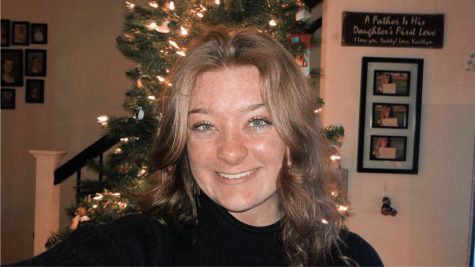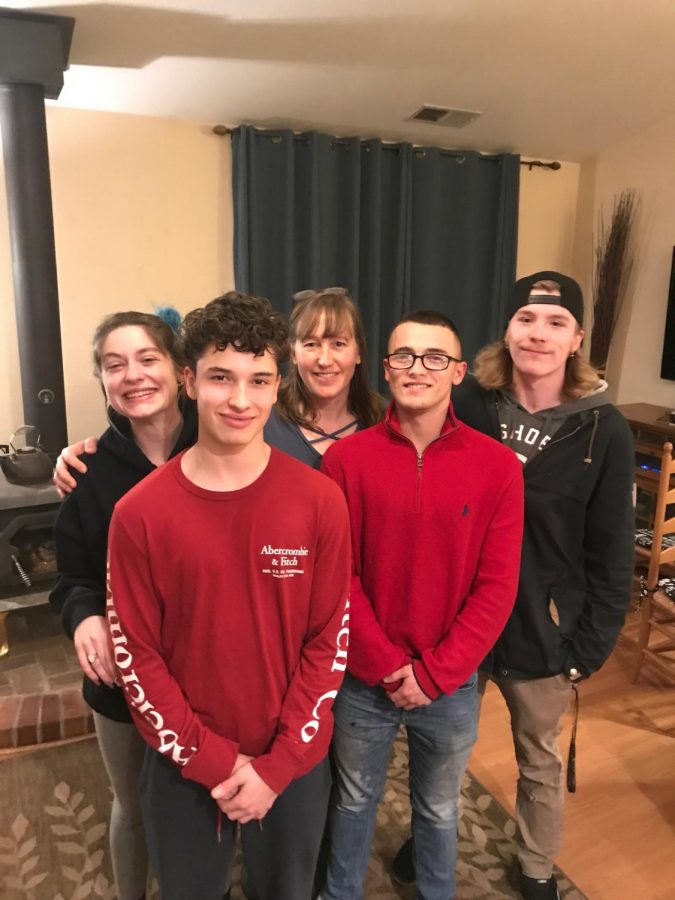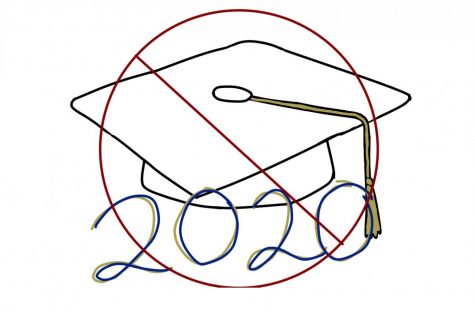Meet the Steeds
A senior and his adoptive mother tell their story
Senior Justin Steed and his family are very close to eachother. He has three siblings that were all adopted, including his biological brother.
According to the American Academy of Child & Adolescent Psychiatry, approximately 120,000 children are adopted each year in the United States.
At age four, senior Justin Steed became one of these children when he was adopted by his parents, Jim Steed and Tracy Jones.
“I don’t really remember what my life was like before I was adopted,” Steed said. “There’s faint memories of houses I was in before, since I went through foster care.”
After family court determined it would be beneficial for Steed to no longer reside with his biological parents, he was put into foster care.
Following many different foster homes, Steed was put into his adoptive parents’ home. Once Jim and Tracy met Justin and his brother, the couple believed that the children were good for them and there was no turning back.
“I always wanted to be a mother, but after several years and many visits to the doctor, it became clear that I would not be able to give birth to my children,” Jones said. “As Jim and I considered adoption, we both thought of the many children in foster care and we felt this was the right path for us.”
Steed’s parents adopted four children in total: two sets of blood-related siblings. First, they adopted Cheyenne at age six and then Montana at age three. Four years later, they adopted Raul at age seven and Justin at age four.
“Family means so much more to me, so if I have a lot of trust for someone, [and they break it], it hurts me more than most people,” Steed said.
Spending time with loved ones is one of the most important things in Steed’s family. During their childhood, the children regularly went to Folsom Lake to spend time together.
Steed believes that the foster care system is a very mentally draining thing to go through, but feels he has become a better person from it.
“Being a parent of children who have gone through childhood trauma has its own challenges, but is still rewarding,” Jones said. “The kids all have abandonment issues and some have other emotional wounds that came from some of their experiences in their birth homes, receiving homes, or some of their foster homes.”
Jones always makes it a priority to ensure that her children understand these feelings as she feels it helps them to work through them.
“My children are a blessing in my life,” Jones said. “They are survivors. They have gone through some really hard things in their young lives, and I am a better person because of them.”

Kaitlyn Edwards is a junior and in her third year of working on the Norse Notes staff. During her sophomore year, she was the sports editor. Outside of...









